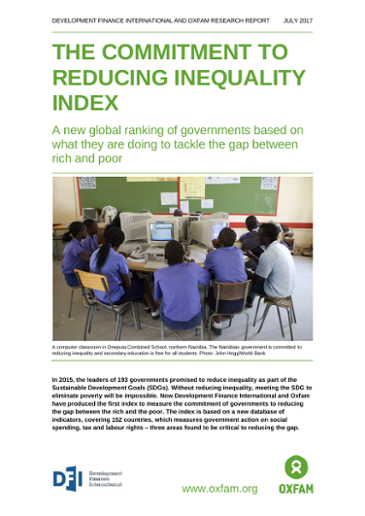
In 2015, the leaders of 193 governments promised to reduce inequality under Goal 10 of the Sustainable Development Goals (SDGs). Without reducing inequality, meeting SDG 1 to eliminate poverty will be impossible.
In 2017, Development Finance International (DFI) and Oxfam produced the first index to measure the commitment of governments to reduce the gap between the rich and the poor. The index is based on a new database of indicators, now covering 157 countries, which measures government action on social spending, tax and labour rights – three areas found to be critical to reducing the gap. This second edition of the Commitment to Reducing Inequality (CRI) Index finds that countries such as South Korea, Namibia and Uruguay are taking strong steps to reduce inequality. Sadly, countries such as India and Nigeria do very badly overall, as does the USA among rich countries, showing a lack of commitment to closing the inequality gap.
The report recommends that all countries should develop national inequality action plans to achieve SDG 10 on reducing inequality. These plans should include delivery of universal, public and free health and education and universal social protection floors. They should be funded by increasing progressive taxation and clamping down on exemptions and tax dodging. Countries must also respect union rights and make women’s rights at work comprehensive, and they should raise minimum wages to living wages.